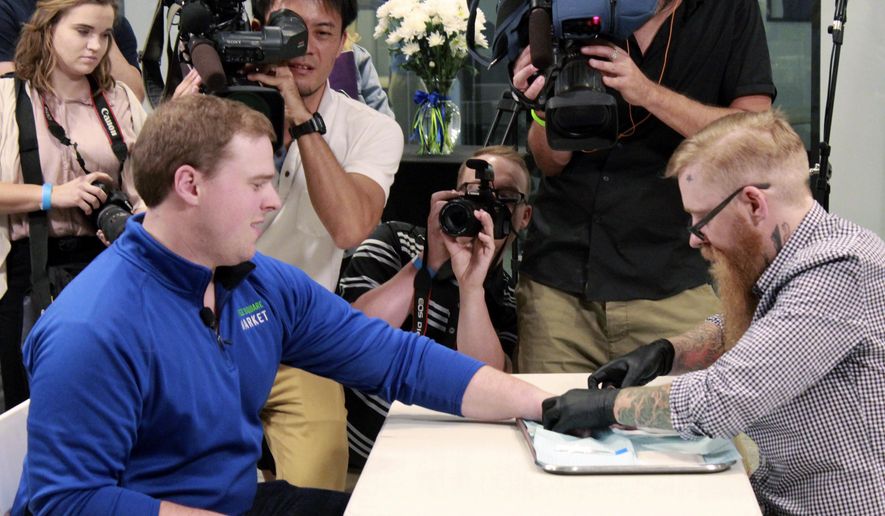OPINION:
The fact this is even a headline — “Bill Would Regulate Microchipping Employees in Arkansas” — shows just how far this country has fallen off its freedom scale.
But the bill is a good thing, really.
This one is aimed at getting ahead of the human chip movement — the one of which USA Today, somewhat eerily, wrote in August of 2017: “You will get chipped. It’s just a matter of time.”
You don’t say.
“It will happen to everybody,” USA Today quoted University of Wisconsin-Milwaukee associate professor of sociology Noelle Chesley as saying.
Again: You don’t say.
Her quote came on the heels of an announcement from a Wisconsin firm, since widely reported, about its new executive policy of embedding employees with RFID (radio-frequency identification) chips so they wouldn’t have to go through (one can only surmise) the time-wasting activity of pulling their key cards out of their pockets and swiping them to gain entry, or the equally laborious chore of typing in computer passwords.
Let freedom reign, right? It’s very nearly like the 1960s triumphant shedding of the bras, ringside women’s movement.
Only — one Arkansas lawmaker isn’t having any of it.
Republican Rep. Stephen Meeks introduced House Bill 1177, Concerning Microchip Implantation Of Employees, to make clear that no employer in the state could “require an employee to have a microchip implanted in the employee’s body as a condition of employment.”
The bill goes on to say that employees must give their consent in writing to microchip; that employees can withdraw that consent at any time; and that if the employee withdraws consent, then the chip had to be removed within 30 days.
And here’s an interesting bit of the bill — one that could very well see employers taking a second or two to think and reflect before they microchip: “If an employee receives a microchip implant at the request of an employer, the employer shall pay all the costs associated with implanting and removing the microchip, pay all the medical costs incurred by the employee as a result of any bodily injury … caused by the implantation … or presence of the microchip [and] disclose to the employee the data that may be maintained … and how the data … will be used by the employer,” the bill states.
In other words: Microchipping employees could bring a whole lot of potential for lawsuit.
Kudos to Meeks for taking the initiative on this technology trend — on this very intrusive, very unnecessary, very creepy and potentially dangerous technology trend. A Maryland Democrat, State Sen. Ron Young, introduced a similar proactive measure in March of 2018.
But more states, many more representatives ought to follow similar suit. Opt-out bills ought to be flooding the state legislatures.
Save the microchipping for the pet dogs. Humans, no matter where they work, have inherent rights to privacy. And dignity.
• Cheryl Chumley can be reached at cchumley@washingtontimes.com or on Twitter, @ckchumley.




Please read our comment policy before commenting.